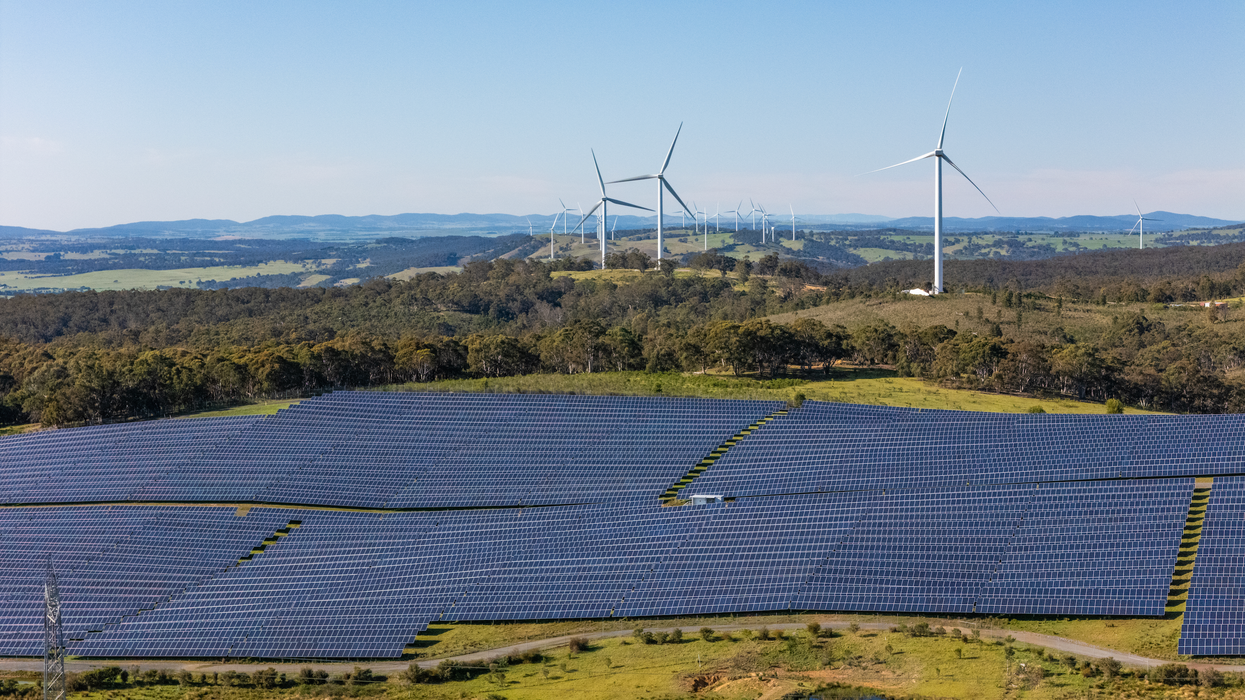In recent years, Michigan has been aggressive in its approach to clean energy: It’s invested millions of dollars in renewable energy infrastructure, created training programs for jobs in the electric vehicle industry, and set a goal of moving the state to 100% carbon neutrality by 2050.
Gov. Gretchen Whitmer and other state officials aim to make the Great Lakes State a leader in clean energy manufacturing by bringing jobs and investments to local communities while also tackling pollution, which continues to wreak havoc on the environment.
Now Michigan’s clean energy efforts have seemingly hit a wall of uncertainty as President Donald Trump’s administration takes ongoing actions to roll back federal climate regulations.
“We’ve seen nothing less than an unprecedented, all-out assault on our environment and our democracy,” said Bentley Johnson, the Michigan League of Conservation Voters’ federal government affairs director.
The clean energy sector has grown rapidly in the United States since President Joe Biden signed the Inflation Reduction Act in 2022. Congress appropriated $370 billion under the IRA, and White House officials at the time touted it as the country’s largest investment in clean energy.
According to Climate Power, a national public relations and advocacy organization dedicated to climate justice, Michigan was the No. 1 state in the nation in 2024 in its number of clean energy projects; from 2022-2024, the state announced 74 projects totalling over 26,000 jobs and roughly $27 billion in federal funding.
Trump has long been critical of the country’s climate initiatives and development of clean energy technology. He’s previously made false claims that climate change is a hoax and wind turbines cause cancer. Since taking office again in January, Trump has tried to pause IRA funding and signed an executive order to boost coal production.
Additionally, U.S. Environmental Protection Agency Administrator Lee Zeldin announced in March that the agency had canceled more than 400 environmental justice grants to be used to improve air and water quality in disadvantaged communities. Senate Democrats, who released a full list of the canceled grants, accused the EPA of illegally terminating the contracts, through which funds were appropriated by Congress under the IRA. Of those 400 grants, 15 were allocated for projects in Michigan, including one to restore housing units in Kalamazoo and another to transform Detroit area food pantries and soup kitchens into emergency shelters for those in need.
Johnson said the federal government reversing course on the allotted funding has left community groups who were set to receive it in the lurch.
“That just seems wrong, to take away these public benefits that there was already an agreement — Congress has already appropriated or committed to spending this, to handing this money out, and the rug is being pulled out from under them,” Johnson said.
Climate Power has tracked clean energy projects across the country totaling $56.3 billion in projected funding and over 50,000 potential jobs that have been stalled or canceled since Trump was elected in November. Michigan accounts for seven of those projects, including Nel Hydrogen’s plans to build an electrolyzer manufacturing facility in Plymouth.
Nel Hydrogen announced an indefinite delay in the construction of its Plymouth factory in February 2025. Wilhelm Flinder, the company’s head of investor relations, communications, and marketing, cited uncertainty regarding the IRA’s tax credits for clean hydrogen production as a factor in the company’s decision, according to reporting by Hometownlife.com. The facility was expected to invest $400 million in the local community and to create over 500 people when it started production.
“America is losing nearly a thousand jobs a day because of Trump’s war against cheaper, faster, and cleaner energy. Congressional Republicans have a choice: get in line with Trump’s job-killing energy agenda or take a stand to protect jobs and lower costs for American families,” Climate Power executive director Lori Lodes said in a March statement.
Opposition groups make misleading claims about the benefits of renewable energy, such as the reliability of wind or solar energy and the land used for clean energy projects, in order to stir up public distrust, Johnson said.
In support of its clean energy goals, the state fronted some of its own taxpayer dollars for several projects to complement the federal IRA money. Johnson said the strategy was initially successful, but with sudden shifts in federal policies, it’s potentially become a risk, because the state would be unable to foot the bill entirely on its own.
The state still has its self-imposed clean energy goals to reach in 25 years, but whether it will meet that deadline is hard to predict, Johnson said. Michigan’s clean energy laws are still in place and, despite Trump’s efforts, the IRA remains intact for now.
“Thanks to the combination — I like to call it a one-two punch of the state-passed Clean Energy and Jobs Act … and the Inflation Reduction Act, with the two of those intact — as long as we don’t weaken it — and then the combination of the private sector and technological advancement, we can absolutely still make it,” Johnson said. “It is still going to be tough, even if there wasn’t a single rollback.”
Policy Changes Could Derail Michigan’s Clean Energy Goals was published by the Public News Service and is shared with permission.
This story was reported by Alyssa Burr for the Michigan Independent.




















Trump & Hegseth gave Mark Kelly a huge 2028 gift